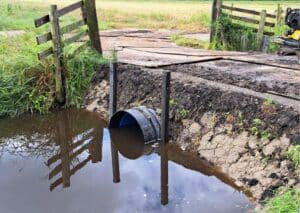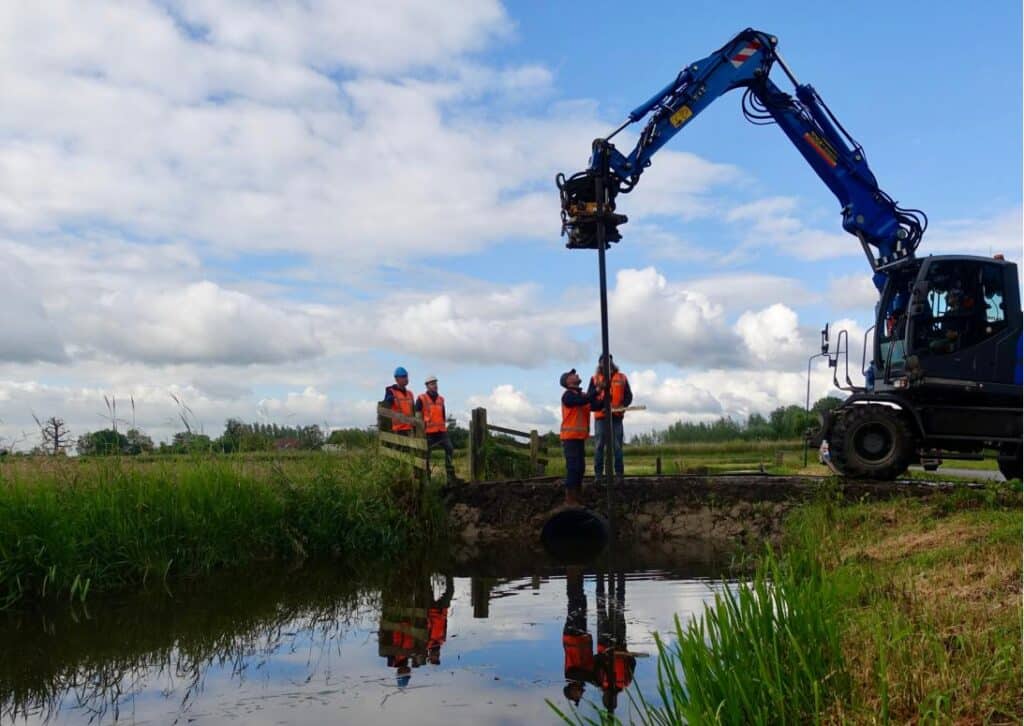HDSR installs posts containing Recell
At the Leidsche Rijn wastewater treatment plant, an innovative installation— developed by Cellvation — annually extracts around 700 tons of cellulose from wastewater. This screened material is processed into a new raw material, Recell. By doing so, we bring the cellulose — previously incinerated as waste — back into the cycle and add value to products such as asphalt and biobased (construction) materials.
Circular
Bio Based Supply is one of the companies that uses Recell fibers in its products. For HDSR, the company produces posts that are placed to mark culverts in water channels. This prevents damage to the culverts by mowing machines. The profiles fabricated by BBS consist of more than two-thirds Recell and are 100% recyclable and 100% circular. This way, we close the loop: HDSR’s ‘waste’ returns as new products for HDSR. And the benefits are also reflected in the numbers!

Impact
With the use of a single post measuring 500 x 8 x 8 cm, 24.63 kg of waste (8.6 kg recycled plastic and 16 kg screened material) is converted into raw material. As a result, 24.63 kg of biogenic CO2 is stored for a long time. The ‘waste’ used is not incinerated, which reduces CO2 emissions by 27 kg, while only 8 kg of CO2 is emitted during the production of the biocomposite.
Low ECI-score
In civil engineering, a low ECI (Environmental Cost Indicator) score is crucial, especially in tenders and procurement processes. The ECI takes into account a total of eleven environmental effects, providing a comprehensive picture of the actual environmental impact. The biocomposite posts for HDSR have a very low ECI score of €1.47.
There’s more…
The use of biocomposite with Recell is not limited to sustainable alternatives for wooden or concrete posts. For wastewater treatment plants, bank revetments, sheet piles, or attractive façade panels are also interesting possibilities to further extract value from ‘own’ resources. In short, plenty of opportunities to make a ‘sustainable impact’!


